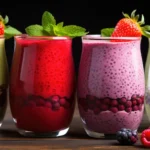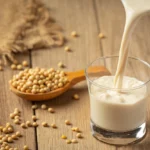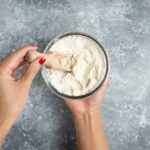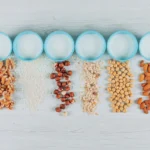Health drinks are specially formulated beverages designed to provide nutritional benefits, enhance overall well-being, and support specific health goals. These drinks have gained immense popularity as people wish healthier lifestyles and seek convenient ways to meet their nutritional needs.
Types of Health Drinks
Health Drinks1. Protein Shakes
Ideal for fitness enthusiasts and athletes, protein shakes help in muscle recovery and growth. They often contain whey, plant-based proteins (such as pea or soy), and essential amino acids.
2. Green Juices and Smoothies
Packed with leafy greens, fruits, and superfood like spirulina, these drinks are rich in vitamins, minerals, and antioxidants, aiding detoxification and boosting energy levels.
3. Herbal Teas and Infusions
Herbal drinks like chamomile, green tea, and ginger tea are renowned for their calming effects, digestive support, and immune-boosting properties.
4. Electrolyte Drinks
Popular among athletes, these help replenish essential minerals lost during intense physical activities, maintaining hydration and energy.
5. Plant-Based Milks
 Alternatives like almond, oat, and soy milk are fortified with vitamins and minerals, making them suitable for those with dietary restrictions.
Alternatives like almond, oat, and soy milk are fortified with vitamins and minerals, making them suitable for those with dietary restrictions.
Benefits of Health Drinks
Nutritional Support: They provide a quick and easy way to meet daily nutrient requirements.
Energy Boost: Certain health drinks or energy-boosting smoothies, offer a natural pick-up without added sugars or artificial stimulants.
Improved Digestion: Probiotic and fiber-rich beverages enhance gut health, aiding digestion and absorption.
Weight Management: Low-calorie, nutrient-dense drinks can support weight loss or maintenance efforts.
Disease Prevention: Many health drinks are rich in antioxidants, which combat free radicals, reducing the risk of chronic diseases.
How to prepare Protein Shakes
Making a homemade protein shake powder is a simple and cost-effective way to ensure you have a clean and healthy protein source. Here’s an easy recipe using common ingredients:
Ingredients:
1. Base Protein Source (Choose one or combine).
Dry milk powder (non-fat or full-fat based on preference). Dried chickpea flour or roasted gram flour Oats (blended into a fine powder). Almond or peanut powder (optional for extra protein and flavor)
2. Additional Nutritional Boosters
Dried fruits like dates or raisins (blend into powder for sweetness). Seeds: Flaxseeds, chia seeds, or pumpkin seeds (ground finely). Unsweetened cocoa powder (for a chocolatey flavor). Cinnamon or vanilla powder for flavor
3. Sweetener
Powdered jaggery (natural sugar alternatives)
4. Binders (Optional):
Coconut powder or almond meal (for better texture)
How to make a powder 
Lightly roast oats, seeds, or nuts to enhance flavor and remove moisture. Use a high-speed blender to grind ingredients like oats, seeds, nuts, or dried fruits into a fine powder. Mix your base protein (e.g., dry milk powder) with the ground nutritional boosters in a large bowl. Store the powder in an airtight container to keep it fresh. Keep it in a cool, dry place.
How to Make a Shake: 
Add 2-3 tablespoons of your homemade protein powder to a glass of milk, water, or your preferred non-dairy milk. Blend with a banana, berries, or any fruit for added flavor. Optionally, add ice cubes for a chilled drink.
Tips:
Adjust the proportion of ingredients based on your taste and nutritional needs. Ensure everything is completely dry before blending and storing to avoid spoilage. Use unsweetened ingredients to keep it healthier. This DIY protein powder is free from artificial flavors, preservatives, and added sugars, making it a healthier alternative to store-bought options.
FAQ :
Q1: Is homemade protein powder healthy?
A1: Absolutely! Homemade protein powder does not contain any preservatives or artificial flavors. You can use natural and clean ingredients as per your requirement, which makes it more healthy and budget-friendly than protein powders in the market.
Q2: What ingredients should I use to make protein powder for health drinks ?
A2: You can take dry milk powder, oats powder, or roasted gram flour for the base. You can add flaxseeds, chia seeds, nuts (almonds, peanuts), and dried fruits (dates, raisins) to add nutrition. It is best to use jaggery powder for sweetness.
Q3: Do I need to roast the ingredients?
A3: If you are using oats or seeds, it would be better to roast them lightly. This adds flavor and keeps the powder fresh for longer time by removing moisture.
Q4: How should this protein powder be stored?
A4: Store it in an airtight container and keep in a cool, dry place. If you live in a humid climate, it is better to store it in the refrigerator.
Q5: How to use homemade protein powder?
A5: Mix 2-3 tablespoons of powder in a glass of milk, water, or non-dairy milk (soy, almond milk). Add fruits (banana, berries) to enhance the taste and mix in the blender. If you want to give chilled shake ice cubes.
Q6: Is homemade protein powder safe for everyone?
A6: Yes, it is made from natural ingredients, so it is mostly safe. But if you are allergic to any seed or nut, then avoid those ingredients. If you are taking protein for a specific medical condition, you should consult your doctor.
Q7: Is this powder useful for weight loss?
A7: Yes, if you use it with proper portion control, it will help in weight loss by meeting your protein needs. High protein diet improves metabolism and keeps you full for a long time.
Q8: How much time does it take to make homemade protein powder?
A8: It doesn’t take much time. If you have all the ingredients ready, your protein powder can be prepared in 15-20 minutes.
Q9: Is the taste of homemade protein powder different from market powders?
A9: Yes, it will be a little different because it has natural ingredients and no artificial flavoring. But you can customize it as per your taste, which is an added advantage.
A9: Yes, it will be a little different because it has natural ingredients and no artificial flavoring. But you can customize it as per your taste, which is an added advantage!
Q10: Can I use this protein powder for my children?
A10: Yes, but ensure that the ingredients are safe for them (check for nuts or seeds allergy). For sweetness, use dates or jaggery powder and add light ingredients like oats and dry milk powder.
Conclusion
Incorporating health drinks into your daily routine can significantly enhance your wellness journey. Whether you’re sipping on a vibrant smoothie, calming herbal tea, or a nutrient-rich protein shake, these beverages offer a delicious and functional way to stay healthy.
<head><script async src=”https://pagead2.googlesyndication.com/pagead/js/adsbygoogle.js?client=ca-pub-3317204152971892″
crossorigin=”anonymous”></script></head>

Pingback: 6 Top Herbs for Stress Relief and Better Sleep
Pingback: How to boost immunity naturally during seasonal changes.immunity isn’t built overnight. It’s a regular interplay of nutrition, lifestyle, and mindful habits that work together to keep us strong